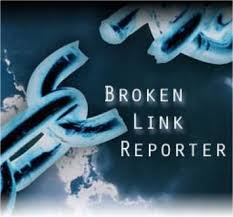
Incarceration: Changing Our Thinking
Incarceration is a term with which most Americans are well familiar by now. Enough movies, books and television and news programs have us all well informed by now about all the dark, evil and brutal aspects of being locked up. True, it’s scary and sinister stuff. It’s the darker side of the human experience, and for most people it is evil and even brutal. But it’s our stuff, meaning that collectively it belongs to us. We, as a society, created it and we sustain it by what we believe about it and how we allow others to run it, just like everything else in the political and economic worlds.
In order to do anything about it that makes any difference, we need to recognize it for what it is, and how it functions with our collective acquiescence and indifference…and our ignoring what goes on inside the walls and fences. That includes what goes on in the minds of the people who manage and administer jails and prisons, many (if not most) of whom do so with a sense of vengeance and coldness that only enflames the problems and reinforces behavior patterns on the part of “criminals” that typically make them worse.
I am not a cynic, nor do I have anything against “the system,” such as it is. In fact, I work with that system, in that I counsel and teach both inmates and correctional officers how to recognize behavior patterns that are destructive and counterproductive, and to change those behavior patterns for the better. It’s amazing how small a change in thinking toward others will positively affect their behavior no matter how “brutal” or vengeful they might be.
How do I know this? I was one of them. I was a federal prisoner for 2 1/2 years, which very nearly became 25 years, with no chance of parole. I survived the experience in the face of brutish resistance and hostility toward me because I looked like everything most inmates and criminals have learned to dislike and distrust. But as I made consistent efforts to help them with simple things like reading and writing, their behavior changed for the better, not only toward me but toward everyone else––including correctional officers. What seemed destined to be a 25-year sentence became far less, primarily because of the good that was evidenced as a result of my work inside. Nearly everyone's attitudes toward one another began to change, and with that came near-miraculous developments that enabled me to not only still be alive, but thriving outside the walls as a useful, contributing member of society.
In order to change anything that has such a huge collective emotional charge such as the criminal justice system, we have to get outside of our own personal issues and pre-conceived notions about crime and criminals, and be willing to change our thinking…if only a little bit at a time. Just being willing to understand is a major step forward. One needn’t agree with or condone criminal or negative behavior, but only be willing to see behind the masks and the negative images we see in the movies and on television. If enough of us do that (and thank God that there is a groundswell of people on both sides now doing exactly that), we can change the way “incarceration” works, and make it work far more effectively.
Don Kirchner
June 9, 2009
www.ReturnToHonor.org



Copyright @ 1998-2009
All Rights Reserved





No comments:
Post a Comment
Please feel free to add your comments on the topic at hand. No advertising or profanity please. Thanks for participating.